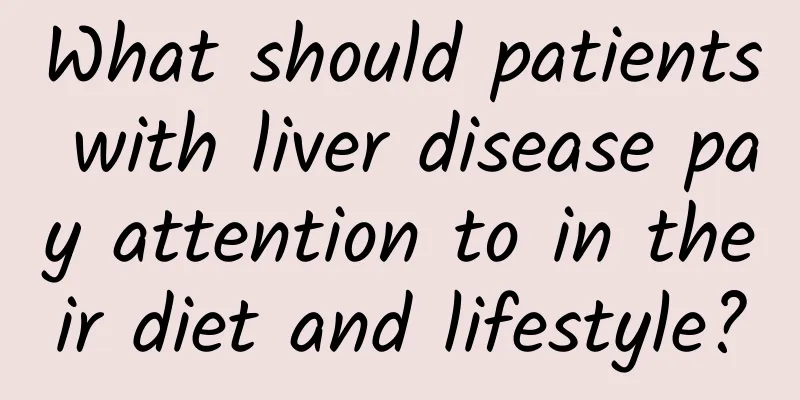Did you know that bad mood can also trigger allergies?

|
Everyone knows that eyes are windows to the soul, and people's happiness, anger, sorrow, and joy can all be truly revealed through the subtle changes in their eyes. But many people don't know that our skin can actually reflect our mood. "People feel refreshed when they are happy" hides this truth: happy people have rosy faces and radiant complexions. Therefore, a good mood is the best beauty and skin care agent, more effective than any cosmetics and drugs. Did you know that a bad mood can also cause allergies? Skin acts as a psychological 'stress detector' Skin allergies may be familiar to everyone. Everyone has experienced skin allergies to some extent. For example, after eating a certain food, the skin becomes red, itchy, and has small red bumps. In addition to being allergic to substances, people are also allergic to emotions. When they are nervous, stressed, angry, and other emotions, many people will repeatedly experience skin allergy symptoms such as rashes and itching. This phenomenon is called "emotional allergy." Clinically, some people experience autonomic dysfunction when facing emotional fluctuations, such as impatience, anxiety, depression or excessive tension. For example, acetylcholine affects the abnormal dilation function of some microvessels, which in turn leads to abnormal histamine function, causing some rashes and itching on the skin. In addition, when emotions fluctuate violently, some neurotransmitters are released in the skin, exacerbating allergic reactions. The skin, a "stress detector", usually causes two reactions: a sudden increase in stress usually causes immediate allergic symptoms such as urticaria and itching, and some people may even experience asthma-like symptoms; while repeated, severe, and prolonged emotional fluctuations can easily lead to delayed allergic reactions, such as psoriasis, neurodermatitis, eczema, vitiligo, acne, alopecia areata, etc. Negative emotions and psychological stimulation can be the cause of skin diseases. People will get sick immediately after being mentally stimulated, and the condition is often aggravated by negative emotions such as mood swings, excessive tension, anxiety, etc. Emotional allergies may be related to constitution and personality In life, most people will face emotional problems to varying degrees, but why do some people experience allergic symptoms while others are fine? This is related to people's constitution. People who have emotional allergies are mostly allergic. Allergic constitution, that is, genetic factors, are the internal cause of allergies. If you don't have an allergic constitution, various emotional problems may only cause people to have psychological diseases, such as depression, anxiety, etc. Emotional allergies may be related to the patient's personality, such as being overly sensitive and introverted; or being overly concerned about the body and getting particularly nervous at the slightest physical disturbance; or being negative and having many negative emotions are particularly prone to emotional allergies. "Heart disease" still needs "heart medicine" to cure Emotional allergies are the result of the combined effects of psychological and physiological mechanisms. The symptoms of this allergy will change with the changes in the body's feelings, stress, and emotions. When negative emotions are vented or relieved, the allergy symptoms will also be greatly alleviated. It can be said that "heart disease" needs "heart medicine" to cure. It is often difficult to cure emotional allergies simply by taking anti-allergic drugs. Common ways to regulate emotions include: talking to relatives and friends, talking out the "bitterness" in your heart; choosing one or two sports you like, preferably outdoor sports; doing something you are usually interested in, and freeing yourself from negative emotions by diverting your attention. In fact, it is normal to have negative emotions. The important thing is to learn to find a way to vent that suits you, but don't hurt yourself. For example, listening to music to create a relaxing atmosphere; reading, writing a diary, watching movies, playing with flowers and plants, etc. are also good ways to broaden your mind and relieve negative emotions, so that you can devote yourself to it. However, when allergic symptoms occur, you should go to the hospital as soon as possible to identify the allergen. If allergic symptoms still recur after staying away from allergens and taking anti-allergic treatment, or if there is no improvement after more than a week of allergic treatment, it is possible that emotional allergies are at work. If there are obvious symptoms such as anxiety and insomnia, and they cannot be controlled, it is recommended to seek help from a psychiatrist and conduct some systematic drug treatment or psychological intervention. |
<<: Do you have low blood pressure?
>>: Eliezer Yudowsky: The Evaporative Cooling Effect of Social Media
Recommend
What is the chance of pregnancy with one deep and one shallow
Many women who are preparing for pregnancy prepar...
Eight reasons for quietly increasing blood pressure What should hypertensive patients eat?
Hypertension is one of the most common chronic di...
What is the disease of a woman's tongue being black?
A black tongue is an uncommon clinical symptom, k...
Tips for breast enhancement after weaning, these methods will make you firmer!
After a period of breastfeeding, women's brea...
What is the normal endometrium? Gynecologists tell you
Under normal circumstances, the thickness of a wo...
How long should I rest after a miscarriage?
In fact, many female friends still don’t pay much...
What causes pain when pressing on both sides of the breast?
If you feel tenderness when pressing your breasts...
What medicine is good for breast enlargement
Women all love beauty and naturally have high req...
Will breasts swell and hurt during early pregnancy?
When pregnancy just begins, pregnant women will e...
Female vulva anatomy
Vulvar itching is a symptom that many women have,...
What to eat after uterine fibroid surgery
If a woman has a uterine fibroid and the problem ...
What should I do if my vulva is itchy and has small lumps?
When there is a foreign object in the vagina, it ...
How many months is 33 weeks of pregnancy
At 33 weeks of pregnancy, the pregnant woman has ...
What causes black menstrual discharge?
Every woman hopes that her menstruation is normal...
What to do if milk swelling and nipple blockage occur after childbirth
After giving birth, pregnant women need to feed t...









